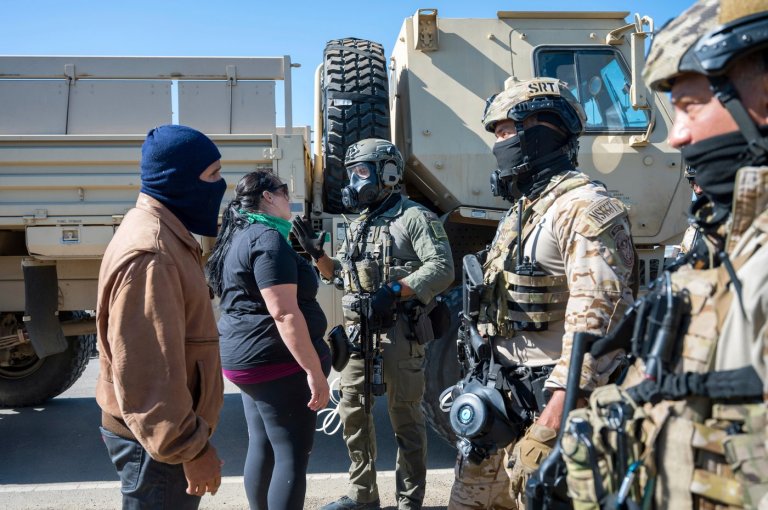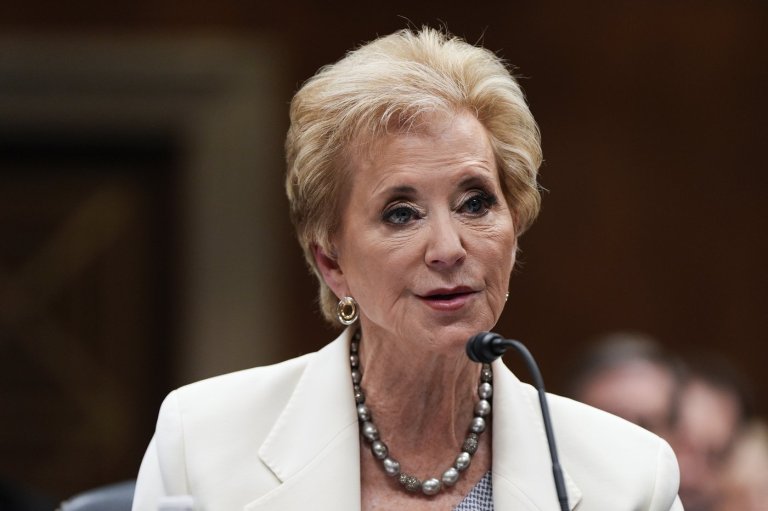In Oval Office meeting, Obama praises new Nigerian leader for pursuing safety, peace
WASHINGTON – President Barack Obama welcomed Nigeria’s new president to the Oval Office on Monday and praised him for working to bring “safety, security and peace” to a nation challenged by economic strains, a history of corruption and violence unleashed by the Islamic extremist group Boko Haram.
Obama met with President Muhammadu Buhari less than eight weeks after Buhari took office to underscore the importance the U.S. attaches to good relations with Nigeria.
The president said Buhari had “a very clear agenda in defeating Boko Haram and extremists of all sorts inside of his country. And he has a very clear agenda in terms of rooting out the corruption that too often has held back the economic growth and prosperity of his country.”
Obama, speaking to reporters at the outset of the meeting, said the U.S. hoped to partner with the African nation “so that Nigeria ends up being an anchor not only of prosperity and stability in the eastern part of the continent, but can also be an outstanding role model for developing countries around the world.” Nigeria actually is in the western part of the continent; the White House said Obama misspoke.
He said he would discuss with Buhari how the two nations can co-operate on counter-terrorism and how the U.S. “can be helpful in addressing some of the corruption issues that have held Nigeria back.”
Buhari, for his part, said Nigeria would be “ever grateful” to the U.S. for its support of free elections in his country. Buhari said U.S. and European pressures to ensure the election was “fair and credible led us to where we are now.”
Buhari met earlier Monday with Vice-President Joe Biden. Buhari adviser Femi Adesina said in a statement that during a discussion on terrorism, the vice-presidentcounselled that victory cannot come from military options alone. Military options “must be combined with strong socio-economic support programs, VP Biden said, promising that the U.S would work with Nigeria in that direction,” the Nigerian aide said.
U.S. relations with Nigeria soured over failures by the government and military, including the inability to locate more than 200 school girls, most of them Christian, who were kidnapped by Boko Haram from the northern town of Chibok in April 2014. The abduction led to international condemnation and a campaign to “Bring Back Our Girls” that reached as far as the White House.
Then-President Goodluck Jonathan was angered by the U.S. refusal to sell his government helicopter gunships and retaliated by halting a U.S. military training program.
Relations are now expected to improve under Buhari, a 72-year-old former military dictator who has pledged allegiance to democracy and promised to address U.S. concerns.
Obama extended his invitation for a visit to Buhari almost immediately after he was declared the winner of the March election.
“This feels to us like Nigeria is at an important moment in which there can be real reforms across the board,” Grant Harris, the senior director for African affairs at the National Security Council, told reporters last week. “We’re looking forward to what we can do with a president who has staked out an agenda that we think is the right agenda at the right time.”
Besides the Oval Office meeting with Obama, Buhari is to meet with Vice-President Joe Biden, Secretary of State John Kerry and other senior administration officials.
___
Associated Press writer Nancy Benac contributed to this report.
___
Follow Darlene Superville on Twitter: http://www.twitter.com/dsupervilleap
Join the Conversation!
Want to share your thoughts, add context, or connect with others in your community? Create a free account to comment on stories, ask questions, and join meaningful discussions on our new site.












Leave a Reply
You must be logged in to post a comment.